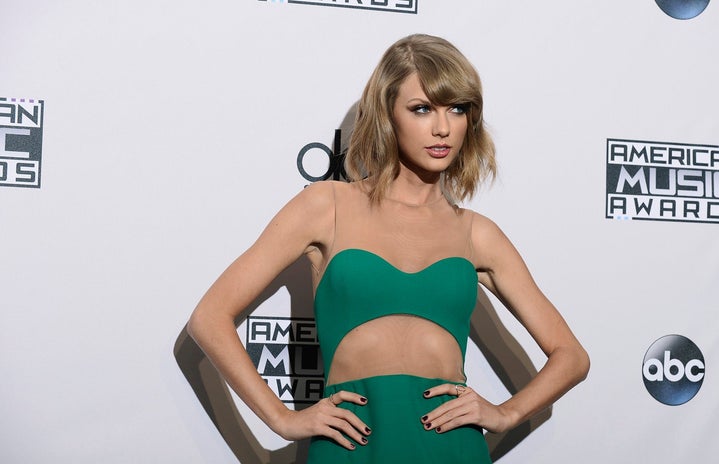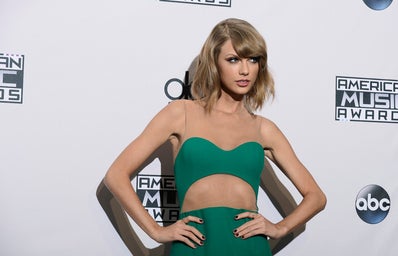Over the course of the 2010s and into the 2020s, Taylor Swift has arguably become the biggest female popstar of her time, with more than enough accolades to highlight her commercial and critical success; the most prestigious of her achievements is arguably her 11 Grammy awards, as her 3 Album of the Year Award wins tie her as the most wins for any artist ever. Her dominance in the music industry means it is almost impossible for any one person to not be able to name a single one of her songs or recognize her melodies when a song is playing in the background, even if they only have a minor interest in pop culture.
However, despite this incredible commercial success, this has not prevented any criticism that may come Taylor’s way. And whilst certain forms of criticism are inevitable, and sometimes necessary, it can be frustrating when these responses are unfounded and inaccurate in their tone.
Such can be said for the recent comments that were made by Damon Albarn, who is best known for being the front man of the band Blur and co-founder and lead vocalist of Gorillaz. In an interview with Mikael Wood, he responded to Wood’s claims that Swift is an ‘excellent songwriter’ who writes and co writes all her songs, by saying ‘That doesn’t count. I know what co writing is. Co- writing is very different to writing…There’s a big difference between a songwriter and a songwriter who co-writes’.
Taylor was quick to respond, tweeting ‘your hot take is completely false and so damaging. You don’t have to like my songs but its really f***ed up to try and discredit my writing’. It took Damon all of 70 minutes to retract his comments, replying ‘I had an conversation about songwriting and sadly it was reduced to clickbait’.
The controversy these words would stir was inevitable. Not only do these words open up a larger debate about sexism in the music industry, but the inaccuracy of the statements can feel very disheartening – Taylor is credited as either sole writer or co- writer on every single song she has released. Special mention must be given to her third album ‘Speak Now’, in which she is the sole writer on every single track. This therefore only paints Albarn as both willfully ignorant and extremely out of touch.
Hypocrisy
The hypocrisy with which Albarn speaks in this interview becomes progressively more prevalent in his subsequent comments about another female artist Billie Eilish, whom he calls ‘exceptional’. Whilst Eilish’s talent is undeniable, she also co-writes all her songs with her brother, Finneas, a fact that Albarn acknowledges. Therefore, his remarks highlight a long running and infuriating debate that just because a song is classified as pop music, with an upbeat sound and written in a lighter key, does not mean that it is automatically a product of a team of executives rather than Swift herself. This suggests because Taylor’s music is part of the pop genre, she must be the product of industry control, whereas Billie must be a legitimate artist because she is much more indie. Whilst it is more than acceptable for Swift’s music to not fit Albarn’s personal taste, to discredit her songwriting skills on this basis is incredibly unfair.
Furthermore, it helps to accentuate the persisting issue of the diminishment of female successes and fan bases that are prominently female heavy. It can feel as though there is a continuous depreciation of female success in the industry – the ‘hate train’ that follows female artists when they begin to reach the peak of their career is undeniable, with it once being a ‘badge of honour’ if you couldn’t name a single Taylor Swift song.
The snobbery towards female heavy fanbases is also long-established problem and viewpoint held by many artists. Back in a 2015 interview with Rolling Stone, the band 5 Seconds of Summer said they spent ‘75% of our lives proving we’re a real band…we don’t want just be, like, for girls’, comments that later devastated their female heavy fan base. It is a viewpoint that is debatably misogynistic in its basis – just because something is liked by girls, does not mean it cannot be critically acclaimed in its creation and reception, and the same can be said for female artists.
This latest dispute emphasizes the idea that it is no longer ‘cool’ to undermine the talent of not only Taylor Swift, but female pop artists as a whole. There is however, a rather positively ironic possible end to this debacle; Swift is well known for writing sexist exchanges such as this into her songs. Not only will Damon be well aware that Swift now writes her own songs, but he just might be making a feature as the next male antagonist in her music.


